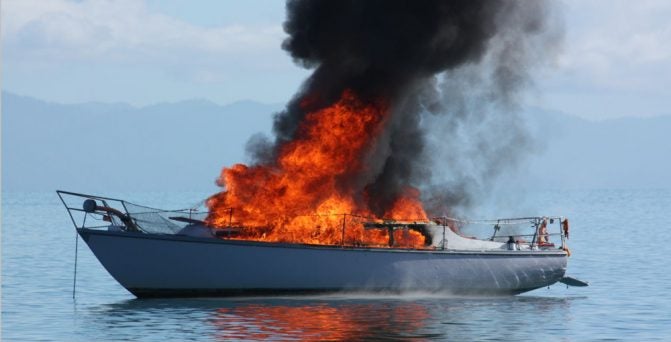
Fire extinguishers for boats are a good investment. In fact, Every boat should have a good fire extinguisher on board in case of emergency.
It’s not too often you see a boat catch fire. But it does happen. Fire can do a lot of damage to a boat, and the safety threat is obvious. That’s why fire extinguishers for boats are so important. Simply put, every boat should carry a fire extinguisher.
Fire extinguishers come in a number of different types, typically rated by the standard A-B-C system. Type A extinguishers work on burning solids, like wood, paper or fabrics, while type B models put out flammable and combustible liquids like gas or oil. Type C extinguishers put out electrical burns. There are also more expensive, but useful combination extinguishers that work on multiple types of fires, and they’re the best bet for a boat.
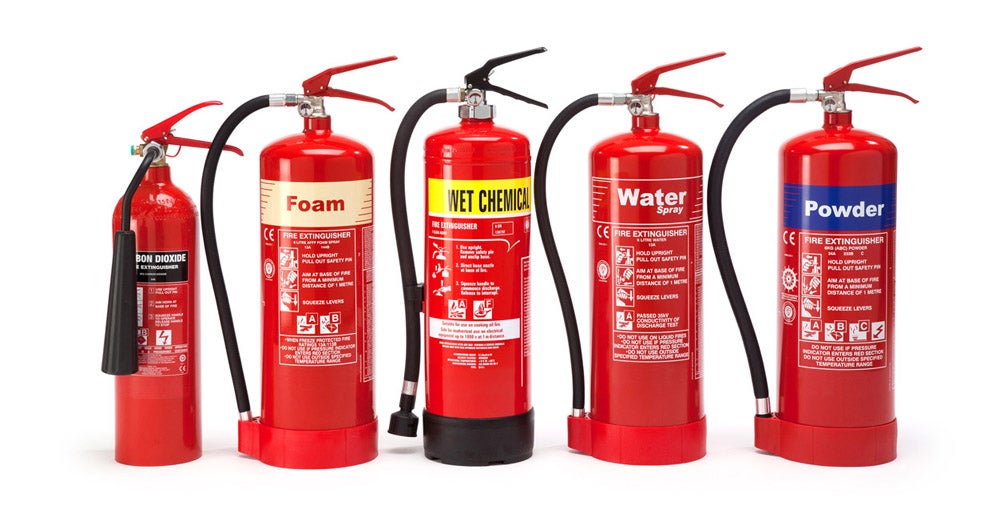
Fire extinguishers come in a variety of styles, not all of them suitable for use on boats.
Each type is available with a variety of different extinguishing materials, including carbon dioxide gas, foam and Halon. Each has its advantages and disadvantages. For example, foam extinguishers are approved for use on boats, but not recommended since they leave quite a mess – their residue can actually result in serious engine damage. And while Halon works great and leaves no mess, it’s for use in contained areas only and normally sold as a fully-automatic system for installation in engine compartments.
Shop for marine fire extinguishers here
Regardless of the type, almost all fire extinguishers for boats require some amount of routine maintenance. For example, foam extinguishers should be emptied and re-filled annually. Dry chemical extinguishers, on the other hand, need more frequent attention. The chemical can cake on the bottom, so these types should be shaken periodically, and mounted horizontally to prevent the chemical from settling on the bottom. Both carbon dioxide and Halon extinguishers should be weighed annually and recharged if they contain less than 90 per cent of their rated capacity.
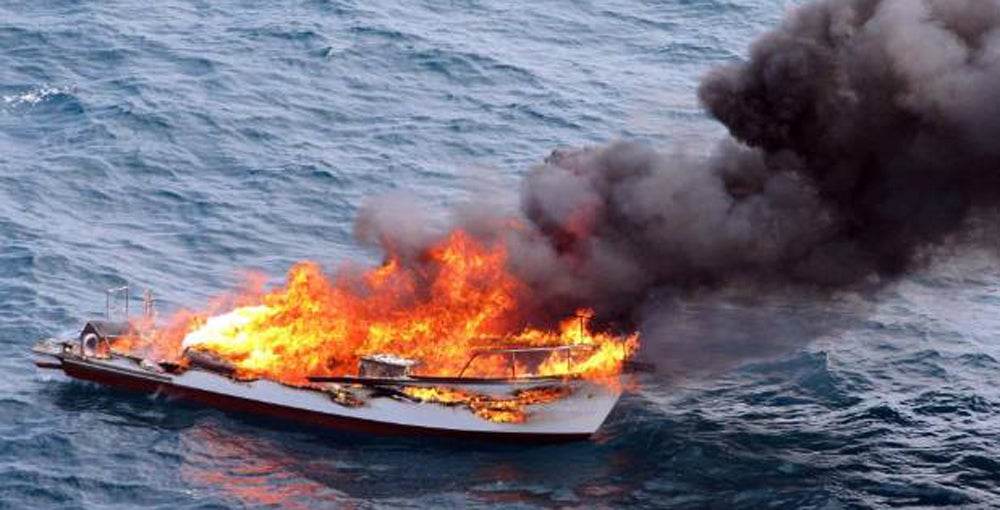
Boat fires are rare, but the results can be extremely serious. Most fires can be easily dealt with before they get out of hand providing the boat has a proper extinguisher on board.
While maintenance on fire extinguishers for boats is important, so is familiarity. Make sure you and every member of your crew know how to use the extinguisher — you don’t want to be experimenting and reading the instructions during a blaze. If you’ve never operated it, start a small, controlled fire in the driveway one Saturday afternoon and try it out/ Let the kids have a blast too, so they’re comfortable with its operation. Then you’ll know exactly how long it takes to work, and how close you can get without scattering burning debris or fuel.
If you’re not comfortable trying this at home, take your extinguisher down to the local fire hall and ask one of the firefighters for a hand. Sometimes fire halls host demonstrations with this very purpose in mind. After all, fire prevention is a big part of their job. They’re all too happy to help.
Fire safety, like many other things, really comes down to having the equipment on hand and knowing how to use it. A suitable, well-maintained extinguisher combined with a bit of practical experience is all that’s needed to protect your boat and crew.
We are committed to finding, researching, and recommending the best products. We earn commissions from purchases you make using the retail links in our product reviews. Learn more about how this works.





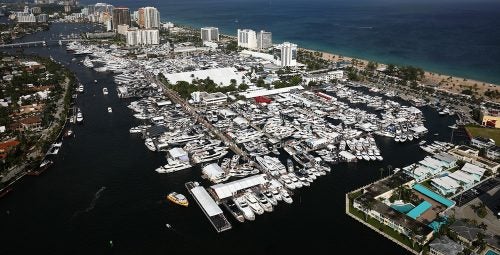 Fort Lauderdale International Boat Show Preview
Fort Lauderdale International Boat Show Preview 10 Best New Boat Accessories at IBEX 2021
10 Best New Boat Accessories at IBEX 2021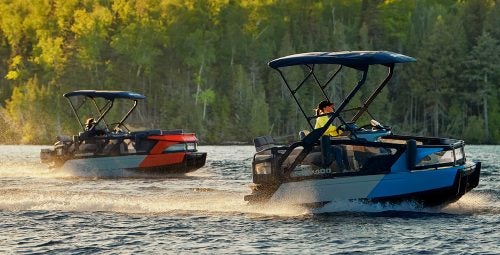 2022 Sea-Doo Switch Pontoon Boat Lineup Unveiled
2022 Sea-Doo Switch Pontoon Boat Lineup Unveiled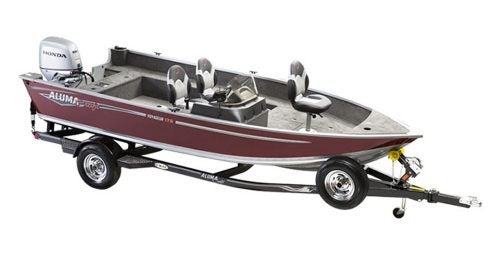 BRP Enters Fishing Boat Market with Purchase of Alumacraft Boat
BRP Enters Fishing Boat Market with Purchase of Alumacraft Boat Volvo Commits To Electric Power By 2021
Volvo Commits To Electric Power By 2021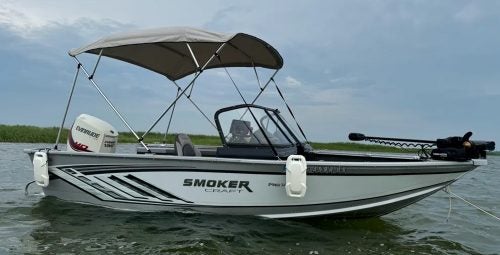 Kemimoto 4 Bow Bimini Top and Boat Bumper Review
Kemimoto 4 Bow Bimini Top and Boat Bumper Review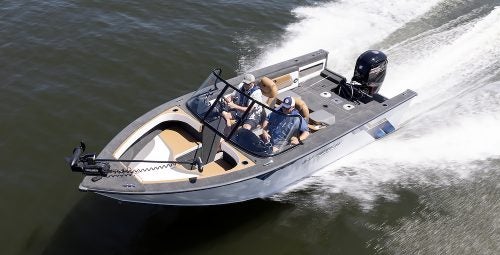 Starweld Victory 20 Review
Starweld Victory 20 Review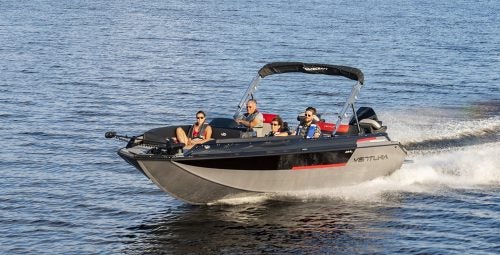 Princecraft Ventura 23 RL Review
Princecraft Ventura 23 RL Review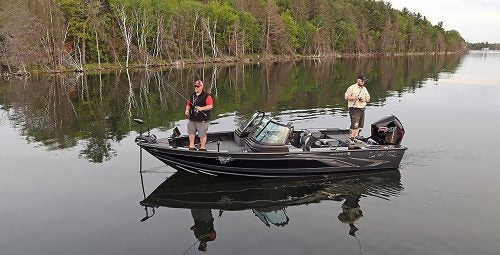 Lund 2075 Pro V Review
Lund 2075 Pro V Review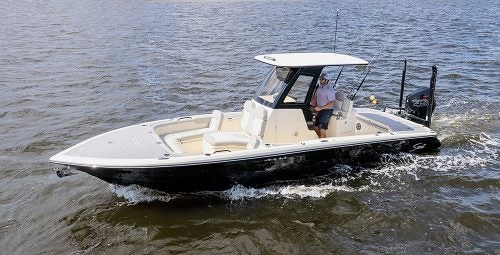 Scout 281 XSS Review
Scout 281 XSS Review Fuel Saving Tips For Boaters
Fuel Saving Tips For Boaters Best Boating Accessories
Best Boating Accessories Best Boating Apps
Best Boating Apps 5 Pontoon Boats That Are Made To Fish
5 Pontoon Boats That Are Made To Fish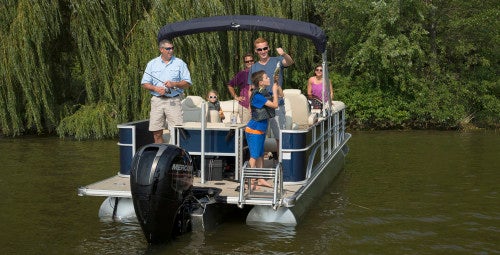 10 Great Small Pontoons
10 Great Small Pontoons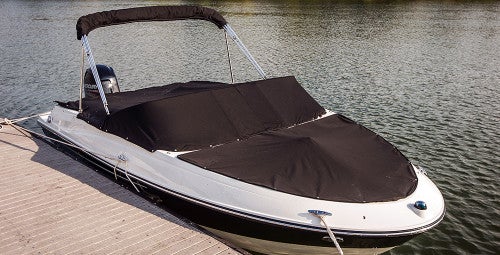 Your Boat Was Expensive—Do You Really Trust a $2 Rope From the Dollar Store to Secure It?
Your Boat Was Expensive—Do You Really Trust a $2 Rope From the Dollar Store to Secure It?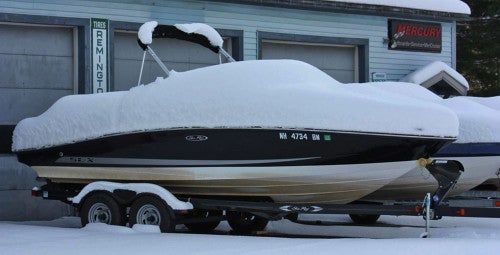 Do I Need Insurance Coverage Against Ice or Freezing Damage?
Do I Need Insurance Coverage Against Ice or Freezing Damage? What Kind Of Insurance Coverage Do I Need?
What Kind Of Insurance Coverage Do I Need?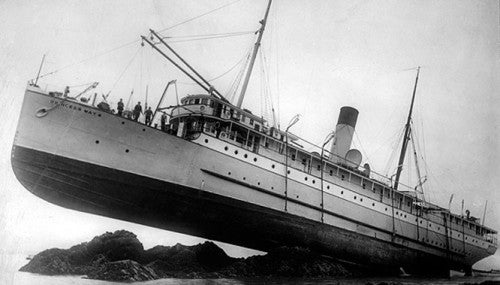 What About Salvage?
What About Salvage?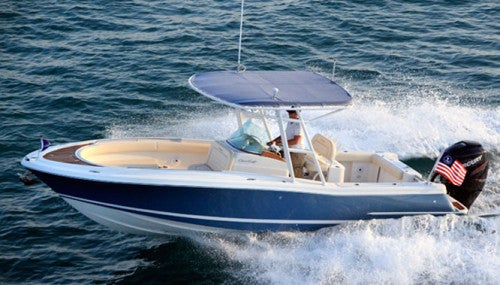 Boat Insurance or Yacht Insurance?
Boat Insurance or Yacht Insurance?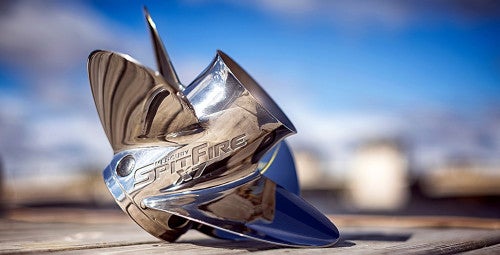
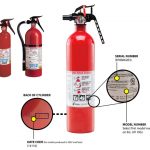

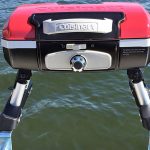
 The Best Bowriders For The Money
The Best Bowriders For The Money
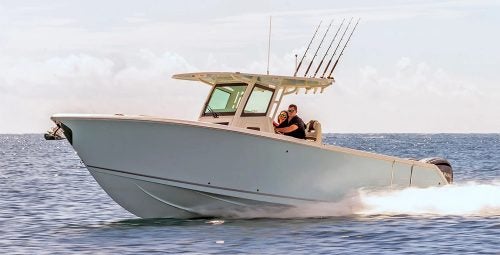 Sailfish 312CC Review
Sailfish 312CC Review
 The Wildest Concept Yachts
The Wildest Concept Yachts
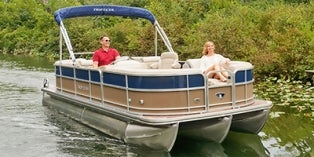 2016 Trifecta 200 Series 220FCR
2016 Trifecta 200 Series 220FCR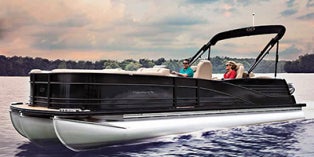 2016 Harris Grand Mariner SL 270 DL
2016 Harris Grand Mariner SL 270 DL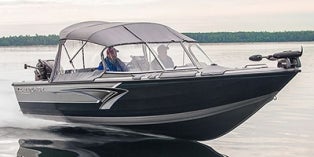 2016 Crestliner Authority 2050
2016 Crestliner Authority 2050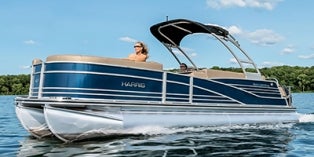 2016 Harris Grand Mariner SL 230 DLDH
2016 Harris Grand Mariner SL 230 DLDH
